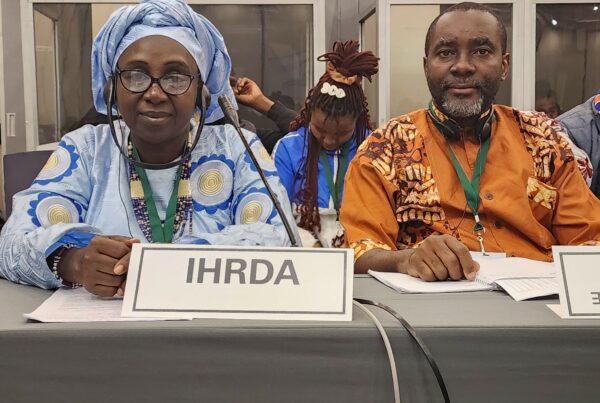27 November 2015
The Institute for Human Rights and Development in Africa (IHRDA) and Finders’ Group Initiative (FGI, a Cameroon-based non-governmental organisation) have sued the Republic of Cameroon before the African Committee of Experts on the Rights and Welfare of the Child (ACERWC), on behalf of a child who was alleged to have been raped by a wealthy and prominent man in Bamenda, North West Region of Cameroon.
The brief on the admissibility and merits of the case was filed before the ACERWC on 14 November 2015.
The child with initials TFA (name withheld for ethical reasons) was aged 10 when she was raped in 2012. Medical reports at the time attested to the fact that she had suffered sexual assaults.
Since the rape was reported, developments related to the incidence show that the Cameroonian legal authorities have not conducted an effective investigation into the circumstances of the offence, and have refused to bring the suspect to justice. Though the Police opened up investigations, the accused was never detained during the investigation, as the Cameroon Criminal Procedure Code demands; the Examining Magistrate eventually dismissed the evidence for disclosing no case, and refused to issue a copy of her judgement to TFA’s Counsel, who needed it to file an appeal. Rather, in July 2012, TFA’s Counsel and aunt were sued for defamation against the said Examining Magistrate, and the case remains pending before the Court in Bamenda, subject to repeated adjournments.
The plaintiffs allege that, due to the lack of effective investigation and prosecution of the accused, the government of Cameroon has violated several rights provided for in the African Charter on the Rights and Welfare of the Child, the African Charter on Human and Peoples’ Rights, the Protocol to the African Charter on the Rights of Women in Africa, the UN Convention on the Rights of the Child, the International Covenant on Civil and Political Rights, the Universal Declaration of Human Rights amongst others. These rights include the right to dignity, right to freedom from torture and other forms of cruel, inhuman or degrading treatment, the right to a remedy and the right against gender-based discrimination.
The Plaintiffs believe that a favourable outcome in the case will be beneficial to the many children victim of rape and other forms of assaults and abuses in Cameroon and the rest of Africa, and will further ensure that the government strengthens its obligations to protect its citizens, particularly children, from sexual violence.
Cameroon has ratified key human rights instruments that promote and protect children’s rights and as such is bound by these treaties.




